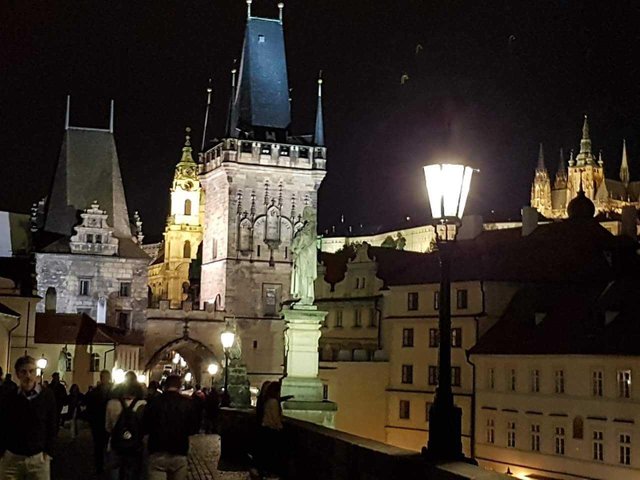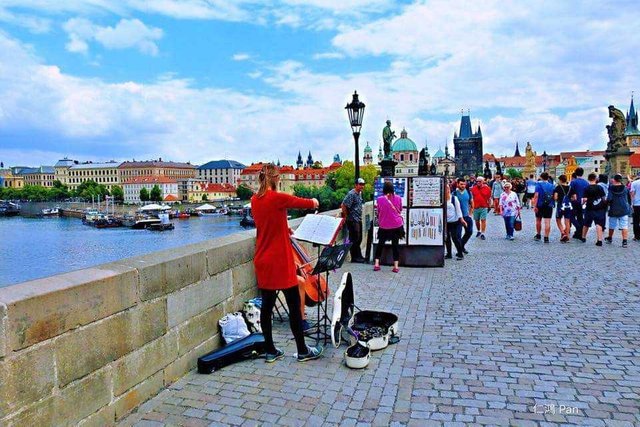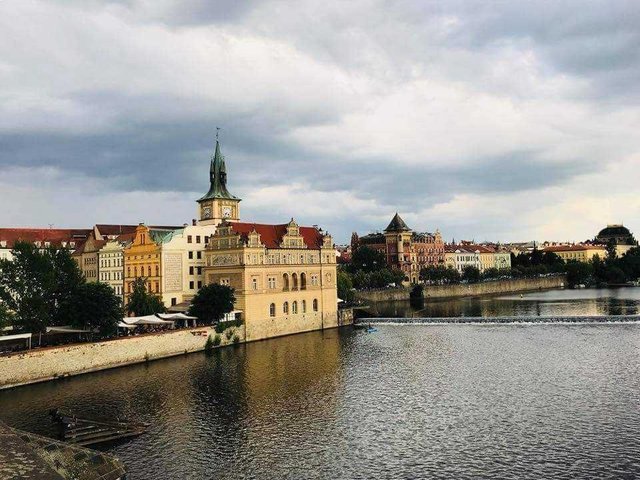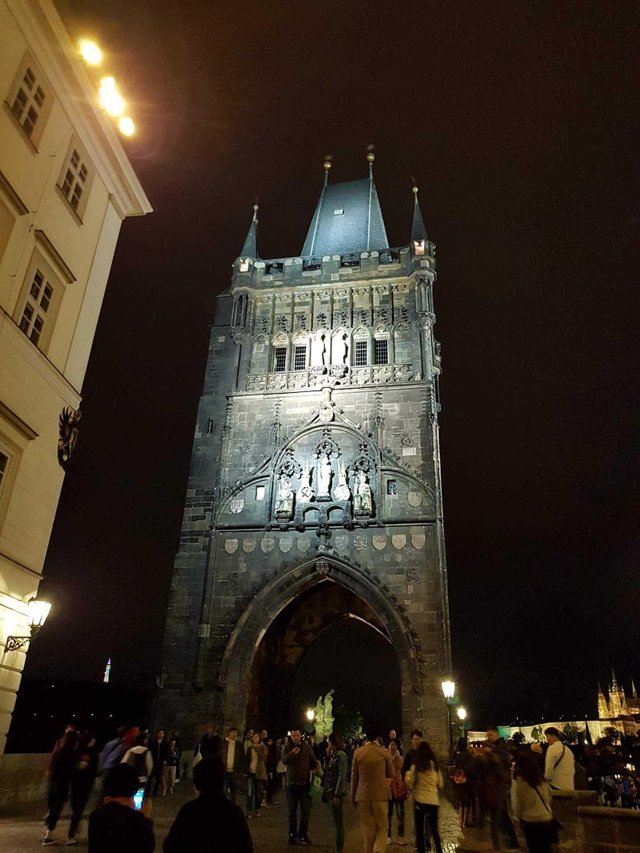This iconic building with its sculptures straddles the Vltava to link the historic "Petit-Côté" (Malá Strana) from the west bank to the old Prague on the east bank.
From every part of this island you can breathe through centuries of rich history and you can immerse yourself in its tranquil and romantic atmosphere - a place that is not yet overwhelmed by tourism. In addition to all the main Prague sights, within walking distance of the hotel, you can find in the immediate vicinity a beautiful park and many garden restaurants, cellars and bistros.

The history of the house goes back to the 15th century, when one of the first Prague beers was cooked, and when the steps of the then Pragueers or travelers from a wide area went to visit the local renowned cellar.
The house, created by the merger of two separate buildings, is today a protected cultural monument. During the complete reconstruction, completed in 1998, the historically specific atmosphere of the house was preserved. Unfortunately, in 2002 the hotel was severely affected by floods in Prague. It is now reopened since May 2003 after a complete reconstruction of the ground floor and a partial reconstruction of the upper three floors.

For centuries, Charles Bridge (Karlův Most) was the only point of passage worthy of the name between the eastern and western parts of Prague. It plays a strategic role since its construction. While vehicles were allowed in the early 20th century, they are now banned. The Charles Bridge is now a popular pedestrian place; which offers a magnificent view of the Vltava and the historic center.
Do not miss the passage between Malá Strana and the Old Town. This is the ancient route of the kings of Bohemia. The bridge is a practical way between many Prague sites, you will cross it repeatedly without ever getting bored.
With 16 stone arches anchored in the Vltava, it is almost 600 meters long and 10 meters wide. Keep your camera in hand because the plugs are not lacking with 30 statues distributed on both sides and exceptional views. Most of these statues date from the 15th and 16th centuries. However, in order to preserve them, they have been replaced by copies. Passersby touch the statues to make them lucky. If you go from the east bank to the west bank, you can enjoy a beautiful view of Prague Castle through.
By day, the bridge is always lively. Artists and street vendors create an atmosphere full of life, mixing modernity and history. For more peace, cross at sunset. The bridge offers one of the most picturesque and romantic sights in Prague.
From the New Town, it is easier to access the bridge by tram, while a short walk from the Old Town and Malá Strana. The crossing is free and open all year.

Inseparable from Prague's image, the Charles Bridge, built in the 14th century, is a symbol of the city. Built in the Gothic period, it was later adorned with a unique gallery of sculptures, a real triumphal hedge of honor symbolically connecting the two shores of the city.
From the 10th century, a wooden bridge crossed the Vltava River more or less at this location, replaced in the 12th century by the first stone bridge of the capital, the Judith Bridge , some of whose vestiges are still visible today (especially in place of embarkation cruises Prague Venice , Old Town side). In February 1342, a violent melting of the ice destroyed the bridge to two-thirds, and the Emperor Charles IV decided the construction of a new bridge that will bear his name, slightly curved against the current. Its solid pillars rest on stilts made of oak. The work is partly led by the great architect and sculptor of the imperial court Petr Parléř, which was also famous at St. Vitus Cathedral . In spite of the successive floods during the history and the partial renovations, it is always on this old medieval bridge that you pass from one bank to the other of the historical center ...
On the Old Town side, the gothic tower that solemnly marks the entrance to the bridge is adorned with magnificent sculptures, masterpieces by the hand of Petr Parléř: we find the Emperor Charles and his son Wenceslas IV as well as Saints Guy, Adalbert and Sigismund, patrons of the kingdom of Bohemia. On the other side, the bridge is closed by two towers of unequal height: the oldest, the Judith tower, dates back to the Romanesque period (twelfth century), the highest date of the fifteenth century and offers a beautiful panorama of the city.
The sculpture gallery that adorns the bridge is equally exceptional. We know that very early, a calvary of wood adorned the bridge, followed by the legendary figure of Knight Bruncvík in the sixteenth century. But it is especially at the turn of the seventeenth and eighteenth centuries that the bridge gradually populates with religious sculptures on the model of the Ponte Sant'Angelo in Rome, forming an extraordinary triumphal alley connecting the two shores of the city, the earth and the sky . The best artists of the timestand out here, in a climate of emulation and artistic competition particularly fruitful (see the most beautiful works in the photo gallery). In the 19th century, other more academic works completed the ensemble, which had been partly damaged by floods or artillery fire. Today, the original statues have often been replaced by copies.
It is sometimes difficult to make a break on the Charles Bridge, where the processions of tourists follow one another without stopping: choose if you can the snowy winter months, the first lights of the dawn or the late hours under the sky starry. the charm of the place operates again.



This user is on the @buildawhale blacklist for one or more of the following reasons: